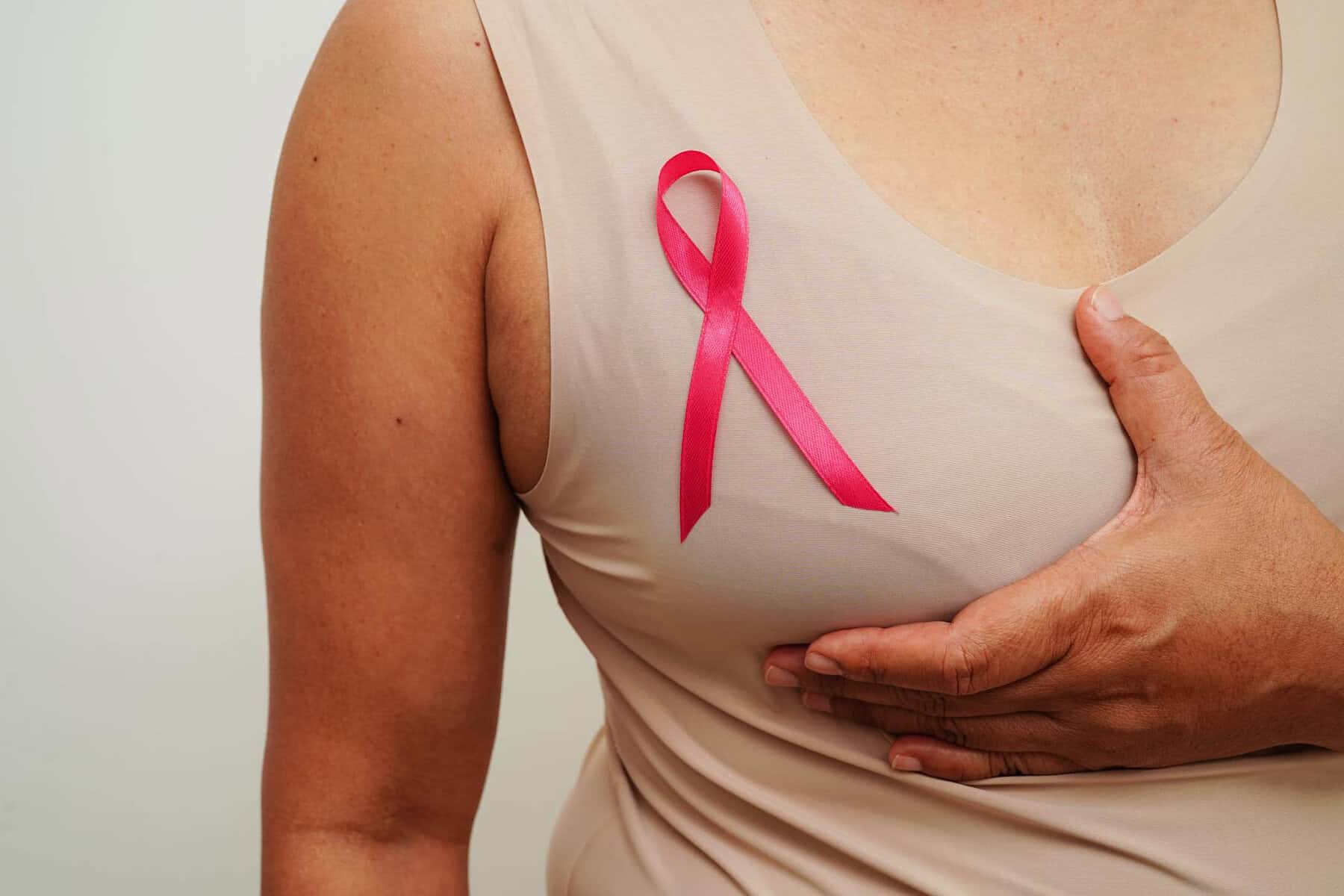Genetic Testing for Breast Cancer
Understanding your inherited risk can be life-changing. Our BRCA1 and BRCA2 genetic testing offers clear, personalised insights, delivered with expert guidance and support from our specialist team at The Forbury Clinic.

What is Genetic Testing for Breast Cancer?
Genetic testing for breast cancer analyses your DNA to identify inherited changes (mutations) in specific genes linked to an increased risk of developing breast cancer. It can provide valuable insights about your personal risk and inform decisions about screening, prevention and treatment.
Some people inherit gene mutations that make them more likely to develop breast cancer. Identifying these mutations through testing can help you take proactive steps to manage your health. It can also offer important information for close family members who may share the same risk.
How our Genetic Testing for Breast Cancer Works
At The Forbury Clinic, our service is designed to make testing as convenient and accessible as possible. Once your test has been arranged, we will send a simple kit directly to your home, or you can collect from our clinic if you prefer. The kit contains everything you need to provide a saliva sample easily and safely.
Once completed, you simply return the sample to our trusted laboratory in the prepaid envelope provided. Your DNA will then be analysed for key genetic markers associated with breast cancer risk.
Results are typically ready within 4–6 weeks. If any actionable findings are identified, we will arrange a consultation with an experienced genetic counsellor to help you understand what they mean and explore next steps.


What is the BRCA1 and BRCA2 Test?
Mutations in the BRCA1 and BRCA2 genes are among the most well-known inherited risk factors for breast cancer.
Normally, these genes help repair DNA damage in cells and prevent cancer from developing. When a mutation is present in either gene, this protective function can be impaired, increasing the risk of breast cancer and some other cancers, including ovarian cancer.
BRCA1 and BRCA2 testing involves analysing both genes together, as part of a combined test. Identifying a mutation does not mean you will definitely develop cancer, but it does mean your lifetime risk may be considerably higher than average. Knowing this information can help you and your healthcare provider plan appropriate monitoring, prevention and treatment options.
Who Should Consider Genetic Testing for Breast Cancer?
Genetic testing is not necessary for everyone, but it may be recommended if you have:
- A personal history of breast cancer at a younger age
- A strong family history of breast cancer, particularly if it occurred at a younger age
- Family members diagnosed with breast, ovarian, pancreatic or prostate cancer
- A known family BRCA mutation
- Ashkenazi Jewish ancestry, where BRCA mutations are more common
If you are unsure whether testing is right for you, our consultants will advise you and help guide your decision.
How is the Genetic Test Carried Out and What Does It Include?
The test is carried out in the comfort of your own home. Once we arrange your test, you will receive a saliva collection kit with clear instructions and a prepaid return envelope. You simply provide your sample at your convenience and send it securely to our accredited laboratory.
Your DNA will be analysed for mutations in the BRCA1 and BRCA2 genes. If appropriate, additional relevant genes may also be included depending on your personal or family history.
Once your results are ready, typically within 4–6 weeks, you will receive a clear report. If any significant findings are identified, we will offer an appointment with a specialist genetic counsellor to help you understand the results and discuss options for next steps, including medical management and family implications.
Understanding Your Risk of Breast Cancer
We understand that considering your genetic risk of breast cancer can feel daunting. You are not alone – many people have questions and concerns about what testing might reveal.
Our team is here to support you at every stage of this journey. Whether your test results show an increased risk or provide reassurance, we will help you understand what they mean for your health and how you can take control of your future wellbeing.

Genetic Testing for Breast Cancer FAQs
- What does the genetic test look for?
The test analyses your DNA for inherited mutations in the BRCA1 and BRCA2 genes, which are linked to a higher risk of developing breast cancer.
- Can I do the test from home?
Yes, our service is fully home-based. We will send you a simple saliva collection kit, which you return to the laboratory in a prepaid envelope.
- How long does it take to get the results?
Results are typically available within 4–6 weeks. A detailed report will be sent to you directly.
- What can genetic testing tell me about my health?
It can identify genetic markers linked to certain inherited conditions, offering insights into your risk and helping guide treatment or preventive care.
- Who should consider genetic testing?
Anyone with a family history of genetic disorders or certain cancers, or those looking for personalised insights into long-term health, fertility, or wellness.
- If my test is positive, does it mean I will get cancer?
No. A positive result means you have a higher risk, but it does not guarantee that you will develop cancer. It provides valuable information to guide screening, prevention and treatment decisions.
- Will I receive support to understand my results?
Yes. If your test identifies any actionable findings, we will arrange an appointment with a specialist genetic counsellor to help you interpret your results and explore next steps.

Why Choose The Forbury Clinic?
The Forbury Clinic provides private genetic testing with accuracy, efficiency and patient comfort in mind. Our expert clinicians use the latest diagnostic technology to ensure reliable results, helping you to understand your body and take control of your health. We prioritise a smooth experience with minimal waiting times, allowing for fast testing and efficient result processing.